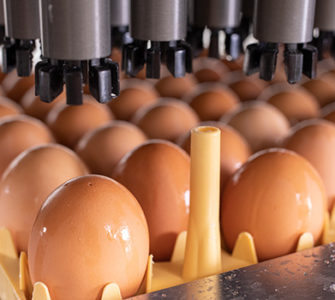How mutations, antigenic drift affect IBD management
Farms affected by variant infectious bursal disease (IBD) viruses may find that currently available IBD vaccines aren’t always effective, said Daral Jackwood, PhD, professor in food animal research at Ohio State University.
Variant IBD viruses have emerged due to antigenic drift, which occurs as the virus slowly mutates and antibodies that once clung to the parent virus no longer bind to the mutated virus, Jackwood explained to Poultry Health Today.
Variant viruses can break through maternal immunity, and if they do that before broilers are 2 weeks of age, permanent immune suppression may result. Secondary infections with pathogens such as Escherichia coli can then cause problems in these flocks, Jackwood noted.
On the other hand, if broilers contract IBD past 2 weeks of age, the birds will have transient immune suppression and recovery is possible, he said.
IBD primarily causes subclinical disease in the field and is very difficult to diagnose. Poor growth, uniformity and feed conversion are typical in infected flocks, issues that can also be attributed to poor management and other diseases, Jackwood said.
It’s when secondary infections, like gangrenous dermatitis, appear in the birds that producers must check if there is immune suppression in the flocks. Those secondary pathogens shouldn’t cause a problem unless there’s immune suppression, he said.
The key to preventing immune suppression in the broilers is a good breeder vaccination program. That means “finding the viruses in the field that are causing the problem and matching those antigenic strains with the viruses that you have in your breeder vaccination program,” Jackwood observed.
Posted on February 19, 2018

















